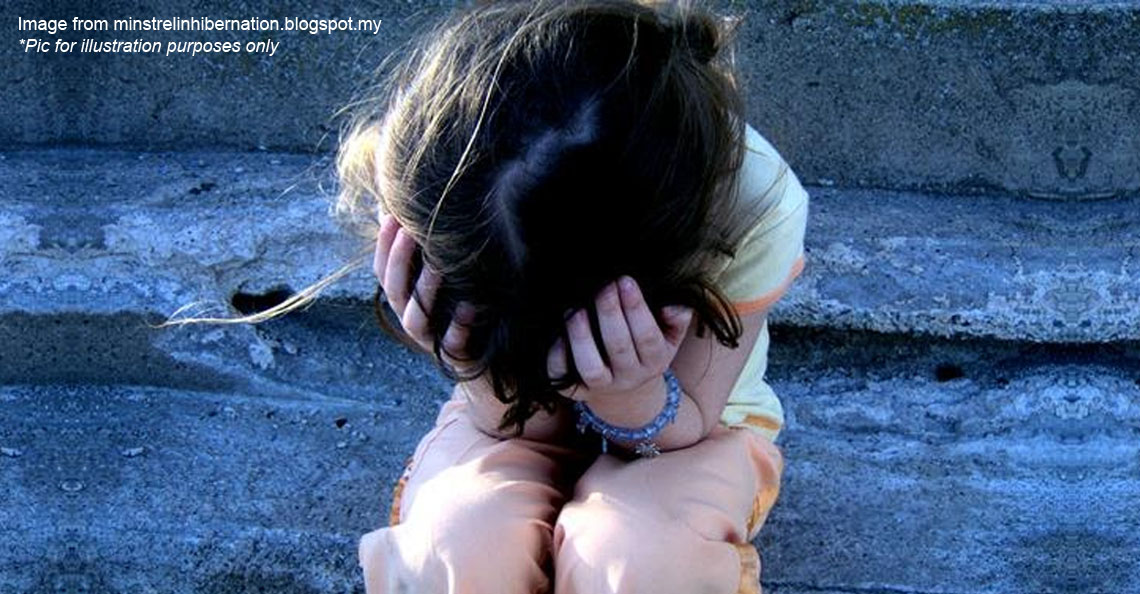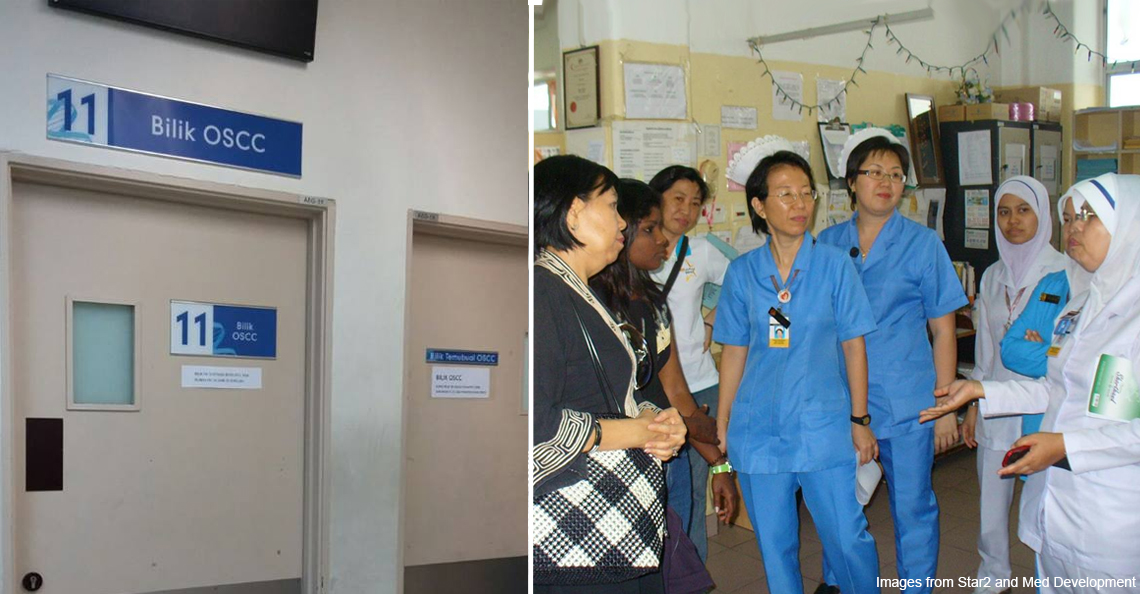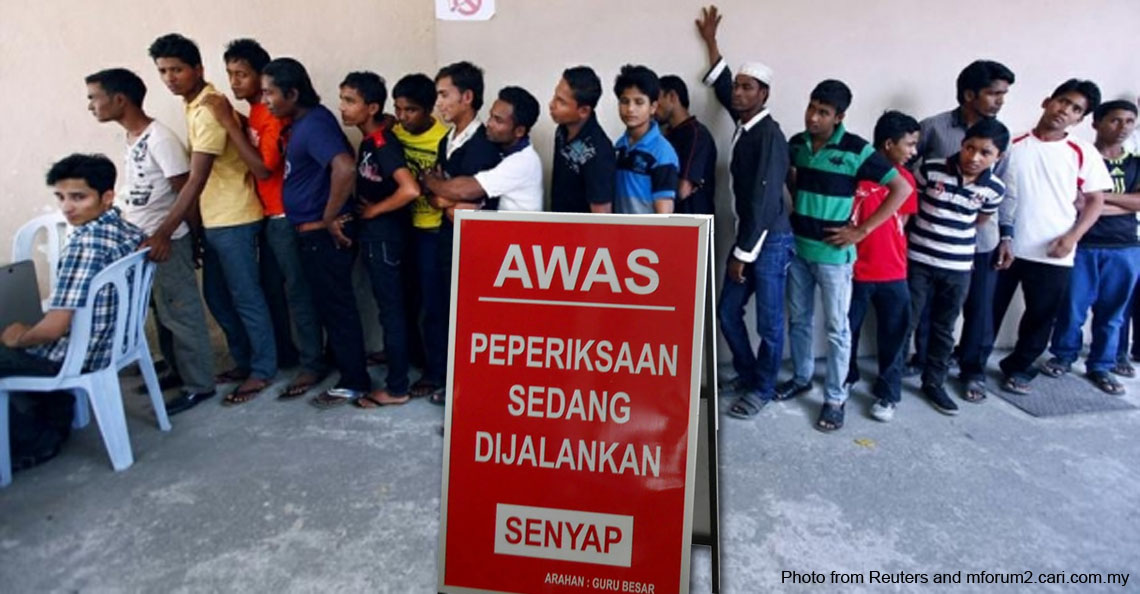Did Rohingya refugees actually ask for Malaysian citizenship? We check this and other claims.

- 1.3KShares
- Facebook1.2K
- Twitter16
- LinkedIn12
- Email10
- WhatsApp62
In the past few days, there had been a noticeable tone of hatred in social media posts and comments talking about Rohingyans in Malaysia, a phenomenon that some have called ‘xenophobic’.
“Prior to this, there was no issue with them coming here. But of late, during the movement control order (MCO) there have been many reports and videos on social media on the Rohingya to provoke public anger towards them,” – Ismail Sabri Yaakob, Senior Minister for Security, as quoted by FMT.
It may not be so worrying if the outrage stayed online, but it seems that some were so affected by the issue that they’re taking it out into the real world, like this one guy who harassed a Rohingyan grass cutter, filmed it, and uploaded it online.
So what’s with the sudden hate for Rohingya people? While it’s hard to pinpoint the exact cause, the outrage seemed to follow several recent events:
- a Rohingyan activist, Zafar Abdul Ghani, allegedly demanding citizenship for Rohingyans
- more Rohingyan boats landing in Langkawi
- Rohingyans allegedly refusing to comply with the Enhanced MCO at Pasar Borong Selayang
Regardless of how it started, since then posts about Rohingyans have been floating around on the net, and whether they’re true or not, they’ve added fuel to some Malaysians’ hatred for them. Today, we’ll be looking at some of the themes surrounding these posts, starting with perhaps the biggest one…
CLAIM: Rohingyas are demanding Malaysian citizenships, among other things
Why people would think that:
While we’re not sure how this started exactly, it seems that a letter by MERHROM, a Rohingyan human rights organization in Malaysia, seems to be the cause. This letter to the Human Resources Minister was from January this year, and it allegedly listed out the demands made by MERHROM to the Malaysian government. The headlines of pages that circulate this letter imply that the Rohingyans are overstepping their boundaries as refugees by making demands.

The situation then through some videos, one of which depicted Zafar Abdul Ghani, the president of MERHROM, speaking English in a heavy accent. The Malay subtitles essentially said that Rohingyas want
“equal rights, Malaysian identity cards, to marry Malay women, and to own businesses. The government cannot touch them, as their numbers are huge.”
Another video listed down 12 demands allegedly made the Rohingyas in Malaysia, which among other things include
- Exclusive permission for Rohingya refugee boats to enter Malaysia
- Equal, organized and structured education for the children of Rohingyan refugees
- Insisting employers to bear all medical costs for their Rohingyan workers
- Working permits, insurance and Socso for Rohingyan workers
- Malaysian citizenship, like for the Chinese and Indians who came to Malaya decades ago
How true is this?

If you read the MERHROM letter carefully, it’s not really a demand. Rather, it listed out the problems faced by Rohingyan refugees trying to work in Malaysia, and for the Minister to consider some suggestions:
- allowing Rohingyan refugees to work based on the sector they’re suited to,
- making it compulsory for their employers to insure them,
- reducing treatment costs and allowing treatment for wage earners in risky cases, and
- not detaining working Rohingyan refugees on humanitarian grounds.
There seem to be no mention of a request for citizenship in the letter, but it was mentioned in the subtitled video of Zafar, when he allegedly asked for ‘identity cards’. However, if you listen carefully and read the real subtitles put by the re-poster, Zafar’s speech was a plea for help from international communities. It’s a parody video, but with that accent, some may believe the Malay subtitles to be true.
The final video do not have a source, but the points related to working conditions seem to be derived from MERHROM’s letter and highly furnished, particularly from the second page. As for the other points, most seem to be furnished versions of the issues facing Rohingyan refugees in Malaysia in general, except for the education point: Zafar did ask for the government to open up formal education to Rohingyan children in February.
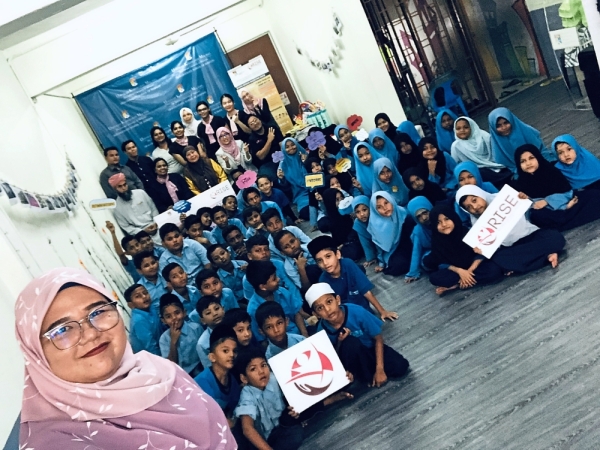
It may be worth mentioning that Zafar is married to a local Malay, and according to law, if a local woman marries a foreign man and has a child in Malaysia, the child will be given a Malaysian citizenship. This might be a source of the whole citizenship thing, as well as the weird part about marrying Malay women in the parody video.
Curiously, other Rohingyans have apologized for MERHROM’s ‘unrealistic and irresponsible’ statement, despite MERHROM’s letter not being what it was touted to be. Maybe we’re missing something here, but on the note of asking for things…
CLAIM: Rohingyas are asking the government to give the Selayang area to them
Why people would think that
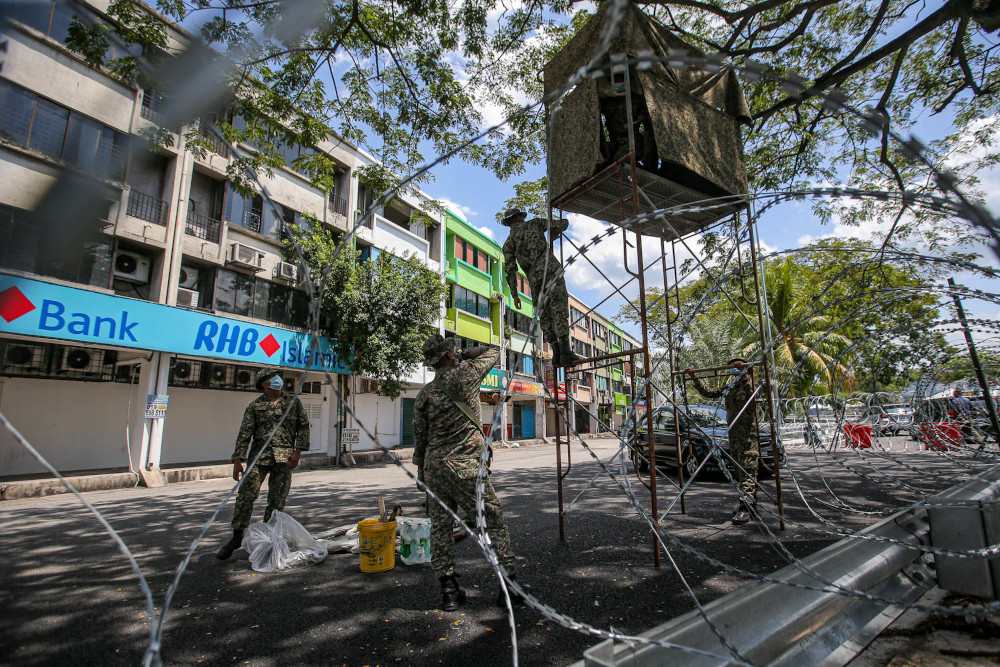
This one’s a little hard to pinpoint, but it seemed to have come from a WhatsApp audio clip. The clip is about 45 seconds long, and if you don’t feel like listening to Malay with an accent, here’s the rough translation.
“Whether it’s provocation, controversy, innovation, or conspiracy, I don’t want to know. I don’t want to hear. Now, the Malaysian government must give equal rights to us, the minorities, the Rohingya refugees. We have contributed to the country’s economy. Now give us rights to, uh, claim our rights. We are also humans. It’s enough to give us Selayang. Selayang. Give it to us. Selayang is Rohingya’s territory. These Malay people, don’t disturb.”
As for why Selayang, it appears that the Selayang wet market is a place where a lot of Rohingyas work and live near to. With the EMCO being enforced there recently, the Rohingyas’ alleged disregard for hygiene seemed to make people see them as potentially risky carriers of Covid-19. To add to the problem, some Rohingyans in the area are claimed to not comply to the EMCO, by riding or driving with more than one person in the vehicle, and cutting the barbed wires surrounding the area.

There were also rumors of a street protest in Selayang following the EMCO, and some videos have since popped up showing Rohingyas protesting for human rights.
How true is this?
For the audio clip, as some have pointed out in the comments of the video, the accent is not quite Rohingyan. For comparison, here is a very recent interview with Zafar, who still has that Rohingyan accent despite having been in Malaysia at least since 1998:
The huge difference in the accent, plus how little else is known of the allegation, makes it possible that it could have been someone unsuccessfully mimicking a Rohingyan accent and spreading it around, maybe as a joke (which is not uncommon, btw). However, it should be noted that there were claims of Rohingyan gangs dealing drugs in Selayang, so maybe it’s real. Who knows?
As for some Rohingyas allegedly flouting the EMCO, well, there isn’t a credible report that specifically states Rohingyas doing that being a common thing. There was a report where a 13-year-old Rohingyan boy was remanded for a week for flouting the MCO, but other than that ethnicities aren’t usually reported in the news. For example, BERNAMA had published a video of one foreigner crawling through the barbed wires surrounding their compound, but his ethnicity wasn’t specified. But based on our own compliance rate, we can assume that people of all races have flouted the MCO at one time or another, and not just Rohingyas.
Regarding the street protests, if there is one, then the media is keeping unnaturally quiet about it. There had been no reports of such a protest in Selayang, and most of the videos that popped up recently was actually of another protest back on Merdeka’s eve 2017. It later turned unruly, but it wasn’t a recent protest.
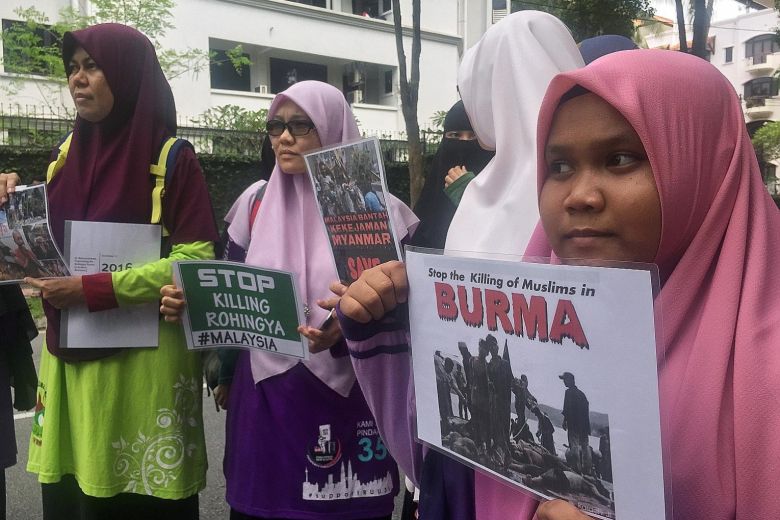
Finally…
CLAIM: Rohingyas are terrible, digusting people
Why people would think that
Following the things that happened in the first two headers, some have took to social media and wrote lengthy posts about their experience with Rohingya refugees. There are several versions of this, and a popular one is from a construction company worker who employed some Rohingya refugees. According to this version, the 20 or so Rohingya refugees working for his company were reportedly being noisy late into the night, and harassing the wives and daughters of other foreign workers in the worker housing area.
The story also highlighted their habit of pooping in plastic bags and polystyrene containers and leaving them around (despite toilets with running water having been provided), their tendency to physically fight their Bangladeshi and Pakistani co-workers over the smallest matters, their resistance to learn from those more experienced in work matters, and their tendency to use the fact that they’re Muslims to gain sympathy with the Malays.
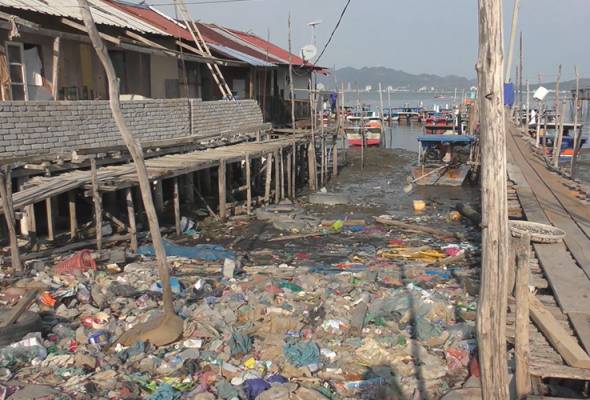
Further adding to the perception, some have quoted Bukit Malut in Langkawi as a cautionary tale if we let too many Ronhingyas into Malaysia. Bukit Malut is supposedly a well-known Rohingya settlement in Langkawi, so much that some have dubbed it as ‘little Myanmmar‘. Besides being said to be a hotspot for drugs and crime activities, the place is also reportedly very dirty, with trash filling up the streets and the beach there.
How true is this sentiment?
Well, this one is kind of hard to verify. There haven’t been studies done yet on the alleged negative attitudes of Rohingya people in Malaysia, and a common way to verify their attitudes in the comments online is “if you work/live/spend some time with the Rohingyas, then you would know what I mean”. All we have to go on with are anecdotes, which is confusing since now there are many posts that point out how some Rohingyas are good, or that they are like that because of their circumstances.
So maybe the answer here is that not all Rohingyas harass other people’s wives and daughters or poop in plastic bags, but not all Rohingyas are good people, either.
As for the Bukit Malut issue, the part where it’s dirty is true to some extent, but part of it was due to poor management, like a lack of rubbish bins. The area is also not under the local authorities’ jurisdiction, it seems. But who lives there is actually filled with mystery, though. The official stance seem to be that they’re not Rohingyas, but are mostly Malays and other races who have lived in Myanmmar before. They have been a source of interest for some time since it is said that many of them have MyKads, and are thus able to vote.
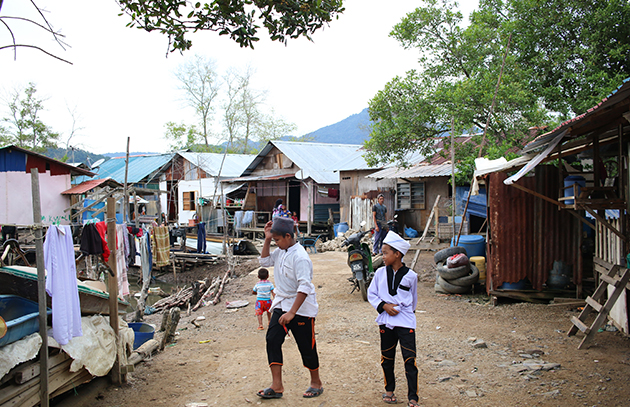
Well, there are probably a lot of other issues related to the Rohingyas that we can’t cover in this article, but these are the most common ones. But to end today’s subject, here’s one last question.
Why are some Malaysians suddenly so very angry with Rohingyas?
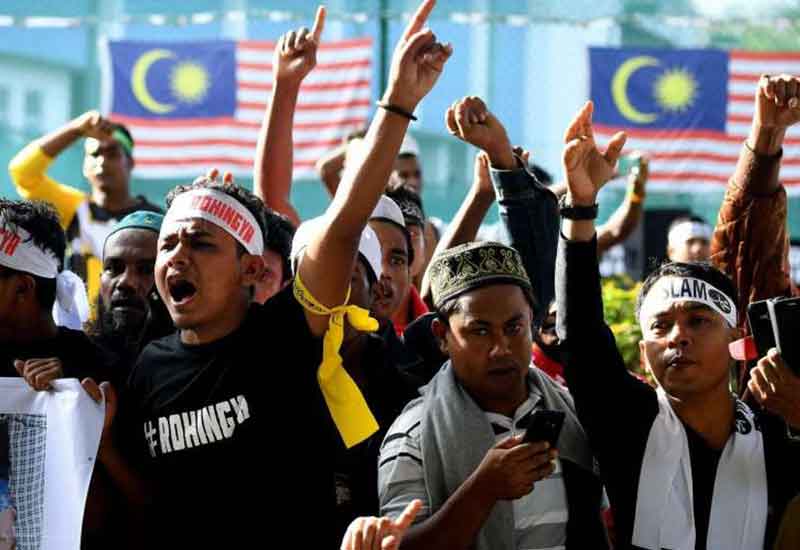
If you’ve read Steinbeck’s The Grapes of Wrath, you might have seen some parallels from the novel to our current situation. In the novel, farming families from Oklahoma suddenly lost their farms to the Dust Bowl, so they migrated en masse to California to look for work. However, the Californians hated them, and labelled them as ‘Okies’. As for why…
“Okies – the (land) owners hated them because the owners knew they were soft and the Okies strong, that they were fed and the Okies hungry; and perhaps the owners had heard from their grandfathers how easy it is to steal land from a soft man if you are fierce and hungry and armed…
And in the towns, the storekeepers hated them because they had no money to spend… The town men, little bankers, hated Okies because there was nothing to gain from them. They had nothing.
And the laboring people hated Okies because a hungry man must work, and if he must work, if he has to work, the wage payer automatically gives him less for his work; and then no one can get more.” – excerpt from ‘The Grapes of Wrath‘ by John Steinbeck.
It might not be a perfect parallel to the Rohingya situation in Malaysia, but it might explain why rumors about Rohingyas demanding for citizenship and other things can be a threat to some Malaysians: there might be an underlying fear that Rohingyas are here to stay and make things worse for everybody. While we’re not denying the possibility that some might intend to do that, the fear may not be as serious after all.
According to a 2020 survey, at least 70% of Malaysians don’t want Rohingyans refugees to be resettled in Malaysia. Perhaps surprisingly to some, a majority of Rohingyas interviewed by the UNHCR don’t want to stay here, either, due to feelings of not being welcomed. Some would prefer to go back to Myanmmar if things improve, while others want to be resettled in a country that would accept them. But the process seemed to be very slow for them, for some reason.
“Why are new people resettled very fast but not us? Chin and Kachin get resettled very fast. We have been here for decades. Many refugees have been here since 1992 but newer refugees are called for resettlement first. We don’t know why – is there something wrong with us? Can people pay to resettle? Is it that we are poor and cannot pay?” – a Rohingyan refugee, as interviewed by the UNHCR.
Some Rohingya individuals may be problematic, but by lumping every Rohingya together under the campaign of hate on social media, it will cause problems for those who don’t deserve the hate in the first place. Since we will probably co-exist with Rohingyas for quite some time more, perhaps both Malaysians and Rohingyans can refrain from doing things that can make the situation any more uncomfortable than it already is, and stop spreading unnecessary things online.
- 1.3KShares
- Facebook1.2K
- Twitter16
- LinkedIn12
- Email10
- WhatsApp62

